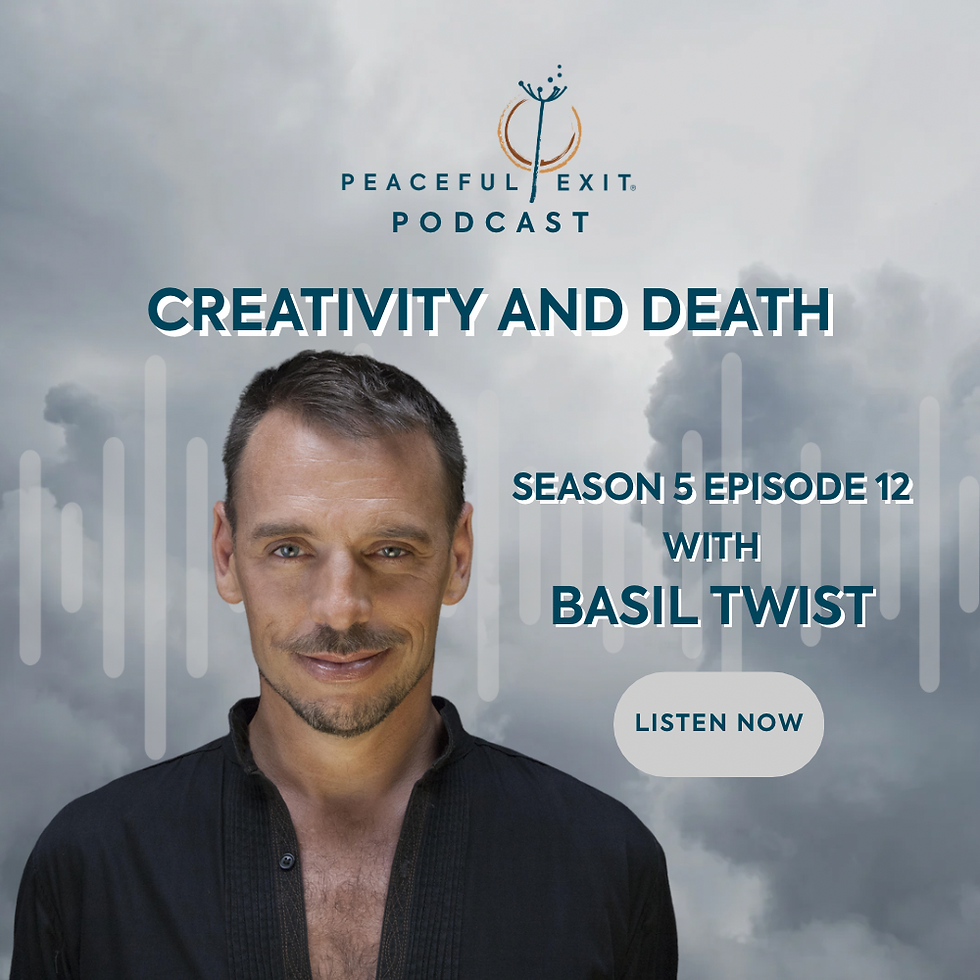Navigating Grief as a Parent: Insights from the Experts
- Sarah Cavanaugh
- Feb 4, 2024
- 2 min read
Updated: Sep 17, 2024
Losing a parent and life partner to cancer can shake the family foundation. Leaving the remaining widowed co-parent to navigate their own grief while also learning how to solo care for their child through a traumatic event.
On a recent episode of the Peaceful Exit podcast, host Sarah Cavanaugh interviews Dr. Justin Yopp and Dr. Don Rosenstein about their wisdom gained from facilitating support groups for grieving parents. The book ‘The Group: Seven Widowed Fathers Reimagine Life,’ followed their first support group for fathers who lost their partner to cancer. Both physicians at UNC’s Cancer Hospital, Yopp and Rosenstein highlight research-backed insights about grief and tips to communicate with kids. While every loss differs, their knowledge spotlights better paradigms for understanding grief and strengthening families amidst tragedy.
1. Rethinking the five stages of grief
Since Elisabeth Kubler-Ross introduced her five stages of grief in the 1960s, North American culture adopted these stages as the normative guidelines. After sitting with dozens of grieving parents, Yopp and Rosenstein reveal most cannot neatly fit their experiences into five rigid stages. Instead, the dual process model more accurately maps their oscillating grief.
This flexible model has two complementary channels: loss oriented and restoration oriented. The first channel encompasses the pain of grief—crying, questioning, and missing your loved one. The latter looks forward to rebuilding life patterns like working or parenting. People organically swing between these channels throughout their grief journey. There is no set timeline or sequence. Pendulating between heartache and functioning can feel jarring, but it is natural.
2. Strengthening foundations through communication
While anticipatory grief allows some preparation, losing a partner can still feel like the solid ground dropped away, leaving the surviving parent suspended without a net. Coping solo while raising grieving kids strains even solid foundations. That is why Rosenstein stresses the urgency for dying parents to share values, hopes, and practical guidance with partners before it’s too late.
Though difficult, having candid conversations about family matters with a serious diagnosis empowers the surviving parent. It assures them of carrying on the partner’s legacy. The experts describe one bereaved mom who left detailed instructions for her husband, even granting permission to date again someday. When the landscape irrevocably changes, such conversations become the bedrock for stability.
3. Weathering the unpredictable waves
Unlike adults, children grieve in unpredictable fits and starts as they mature. After his own rocky grief, one teenager pressed his dad for details about his mom’s illness and death. Though caught off guard, the dad recognized his needs and had a long overdue discussion. His attentiveness to his son’s grief resurgence improved their connection.
Many children appear well-adjusted early on, leading parents to incorrectly assume their stability. However, Yopp cautions that delayed grief often ambushes kids years later as their understanding deepens. New losses can also trigger fresh sorrow that requires sensitivity from others. While riding out these waves of grief, ongoing peer support gives parents like those in Yopp and Rosenstein’s groups a safe harbor for airing struggles and gaining wisdom for the journey ahead.



